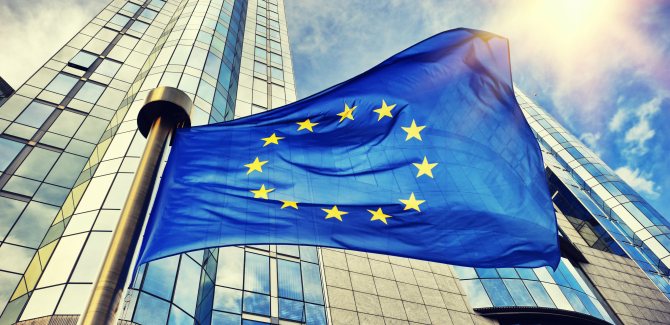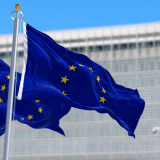
EU Anti-Money Laundering legislation sees major overhaul in 30 years as Commission updates rules
It is with great interest that EL follows developments around Anti-Money Laundering (AML) at EU level. AML is one of the most pressing regulatory areas for gambling operators with significant fines for compliance failings. Over the past 30 years, the EU legislative framework to fight money laundering had been updated regularly. Yet, the existing framework is still deemed to suffer a number of shortcomings. This is why last year the European Commission presented an action plan for a new single EU anti-money laundering system. Delivering on the action plan, on 20 July 2021 the European Commission presented its legislative proposal bringing about EU level supervision of certain AML related issues.
EU AML legislation and the gambling sector
The existing EU AML legislative framework already has a substantial impact on the gambling sector. Yet, different types of gambling services may be treated differently from one EU Member State to another. This is due to the fact that – with respect to a risk-based approach and provided an adequate risk assessment – EU Member States may grant exemptions to certain gambling services – apart from casinos – from some or all of the requirements laid down in the EU AML rulebook. For example, land-based bingo is seen as presenting a low level of money laundering/terrorist financing risk due to the relatively low stakes and winnings involved. Those gambling operators that are not granted any exemptions have to respect a set of strict obligations related to customer due diligence, politically exposed persons, or beneficial ownership, to name a few.
What’s new in the Commission’s legislative proposal?
The measures enhance the existing EU framework by taking into account new and emerging challenges linked to technological innovation such as virtual currencies, more integrated financial flows in the Single Market and the global nature of terrorist organisations. The proposals aim to create a more consistent framework to ease compliance for operators subject to AML/CFT rules, especially for those active cross-border.
Main axes of the reform
- A harmonised rulebook. The proposal seeks to further harmonise certain elements of the existing EU AML legal framework by introducing a set of new, directly applicable rules. These would include scope (i.e. list of obliged entities); core requirements (e.g. customer due diligence, beneficial ownership transparency, reporting obligations); and institutional elements (e.g. supervision and cooperation, administrative sanctions, status and powers of Financial Intelligence Units).
- EU level supervision. The proposal would establish a new EU level AML authority at the centre of a new supervisory system. This authority (AMLA) will be the central authority coordinating national authorities to ensure the private sector correctly and consistently applies EU rules. It would have direct supervisory powers over financial institutions and oversight/coordination powers in the non-financial sector, such as gambling. More concretely, oversight of non-financial obliged entities would include coordination, data hubs and exchanges of good practices.
- Supporting and coordinating the work of Financial Intelligence Units (FIUs). The proposal would also set up a mechanism to coordinate and support the FIUs through enhanced integration of their work with the work of the new AML authority. The new AML authority would provide technical support, assistance to analysis produced by FIUs and facilitation of joint work, especially in cross-border cases. Common templates and standards are foreseen, as is a structure that would enable exchanges of experiences and peer reviews (trainings, staff exchanges, etc.) and a stable hosting for the system for exchanges of analyses and reports between FIUs.
- Full application of the rules to the crypto sector. At present, only certain categories of crypto-asset service providers are included in the scope of EU AML/CFT rules. The proposed reform of will extend these rules to the entire crypto sector, obliging all service providers to conduct due diligence on their customers. A revision of the regulation on information accompanying transfer of funds will make it possible to trace transfers of crypto-assets and limit large cash payments. The Commission also proposed an EU-wide limit of €10,000 on large cash payments, which is high enough not to put into question the euro as legal tender and recognises the vital role of cash. Limiting large cash payments makes it harder for criminals to launder dirty money. In addition, providing anonymous crypto-asset wallets will be prohibited, just as anonymous bank accounts are already prohibited by EU AML/CFT rules.
European Lotteries and AML
EL considers that no further harmonisation of the AML rules at EU level is needed where they apply to the gambling sector, in accordance with risk-based approach enshrined in these rules. The decision by the European Commission not to make the gambling sector subject to direct supervision of a new EU level AML watchdog is therefore one that EL welcomes. Supervision of lotteries by competent national authorities works perfectly well, a fact explicitly acknowledged by the European Commission itself in its Supranational Risk Assessment 2019. Further enhancement of cooperation and coordination between Financial Intelligence Units (FIUs) could potentially be of benefit, for example by enabling the exchange of “politically exposed persons” lists between FIUs.
EL Members only operate in the jurisdictions in which they are licensed and where they pay all taxes and comply with the national legal requirements including on AML. Below we hear the views from two EL Members on AML and the effects of the EU legislation on the gambling sector in their countries and in particular their lotteries.
Experiences and views of AML experts from EL Members
Interview with Natalia Jaquotot Garre, SELAE Representative before the Spanish FIU and Szilvia Kerti, Senior AML Expert, Szerencsejatek, Hungary
EL: How challenging is it to address AML issues for your lottery right now and what are some of the most frequent problems that you face? What could help you to address these problems more effectively?
Natalia: In the last years EU AML legislation has been an important advance in the fight against money laundering because tighter controls have been put in place on ultimate beneficial ownership, on the due diligence measures or on the reporting of operations, in order to mitigate and manage the risks with a greater focus on evidence-based decision making. However, European legislation does not provide lottery operators with the right tools to fight against money laundering. EU AML legislation does not stop lottery operators from paying prizes to investigated or condemned people for money laundering crimes. In addition, the creation of public lists, at EU level, of PEPs, offenders investigated or condemned for money laundering or beneficial owners, would extremely ease our compliance obligations. That said, the main challenge SELAE has to face, in order to fulfil compliance obligations, consists of developing an accurate risk matrix, taking into account that the gambling services provided by our lottery are not as risky as the casinos´ ones. Risks must be measured consistently and reasonably.
Szilvia: It is not a problem, but more of a challenge to continue to attract and retain as many players as possible, while complying with the legal environment. In the past year, we have been able to simplify the registration process for remote gambling customers. In order to deal effectively with problems, we need to have a cross-disciplinary approach within our company, and we can also have access to the Supervisory Authority if serious issues arise.
EL: What have been the main effects of the EU level AML legislation so far on the gambling sector in your country and your lottery in particular?
Natalia: SELAE has to fulfil real hard obligations due to EU AML legislation, for example the legislation imposed very hard obligations with regard to customer due diligence measures, taking into account that we have to identify prize-winners as of 2.000 € which is a very low threshold.
Szilvia: We are only one of the players in the Hungarian gambling sector. In the online space, in the case of remote gambling, we already had an environment (player base, control functions) which provided a good basis to more easily adapt to the new regulatory environment. In the offline space, meaning the lottery network, it was more of a challenge to comply with the legislation as all the processes had to be developed. We also placed a lot of emphasis on staff training. I am pleased to say that our customers have also taken note and accepted the new processes stemming from the legislation.
EL: The proposed new EU legislation foresees a shift of AML supervision from Member State level to an EU level watchdog which would have direct supervisory powers over financial institutions and oversight/coordination powers in the non-financial sectors such as gambling. What do you think about that from the perspective of your lottery?
Natalia: A new EU level watchdog could potentially be of great help to Member States as it could ease coordination among FIUs and could become an instrument to fight against organised crime and money laundering attempts. In the gambling sector, the new supervisor at EU level could contribute to generate and nourish international lists of PEPs or beneficial owners or offenders convicted for money laundering. However, in strict observation of the principle of subsidiarity, Member States remain best placed to regulate, as well as to supervise the gambling sector at the national level, including when it comes to AML.
Szilvia: I think that Member States are best placed to regulate gambling. It is good that the Commission has recognised that gambling should not be directly supervised by an EU level body and that - having regard to the principle of subsidiarity - this should not change in the future.
EL: The proposed new EU legislation also foresees a mechanism to support and coordinate the work of FIUs across Member States. What has been the experience of your lottery with your respective FIU so far and do you have any suggestions on how this cooperation could be improved?
Natalia: In accordance with the best international practices, SEPBLAC (the Spanish FIU) exercises its supervisory functions according to a risk-based approach, so that the supervisory cycle is more intense with respect to those sectors of activity and obliged subjects with a higher risk of money laundering and terrorist financing. In particular, SEPBLAC shall be notified of transactions that, with regard to the activities listed in article 1 of Law 10/2010 of 28 April, reveal an obvious inconsistency with the nature, volume of activity or customer operating history, provided that the special review referred to in article 17 of the aforementioned law does not perceive any economic, professional or business justification for the execution of the transactions. Right now, the relation between SELAE and the Spanish FIU (SEPBLAC) is unilateral. That means that SELAE reports suspicious operations to SEPBLAC but never gets any feedback in return. A bilateral relation between both entities would be desirable, because it could provide SELAE with relevant and valuable information: which operations reported by SELAE have given rise to criminal investigations?; which prize-winners have been sentenced for money laundering crimes?
Szilvia: During the course of our work, it is essential that we maintain good relations with the local FIU. This is the only way we can effectively combat crime and fulfil our obligations under the EU AML legislation. We could further improve our cooperation and the effectiveness of our work by intensifying the dialogue with each other, and by getting more feedback on our reports, which would certainly help us to do an even higher quality work. On the other hand, we could even imagine round table discussions on a regular basis with participation from representatives of the gambling sector, the FIU and the Gambling Control Authority.
Next steps
The European Parliament will now commence the work towards adopting its position on the European Commission’s proposal, as will the Member States in the Council before the negotiations between all the three institutions can start and the legislative text is finalised. In a Joint Declaration on EU Legislative Priorities for 2021, all the three EU institutions already recalled their commitment to tackle money laundering. The future AML Authority should be operational in 2024 and will start its work of direct supervision slightly later, once the Directive has been transposed and the new regulatory framework starts to apply.
It is noteworthy that the implementation of the EU AML rules by the EU Member States has been an issue for the European Commission in the past. At a time, the European Commission has launched infringement procedures against all 28 Member States as it assessed that the communications received from the Member States did not represent a complete transposition of the 4th AMLD. With regard to the 5th AMLD, there are currently infringement proceedings pending against 22 Member States. This has probably motivated the European Commission to opt for a regulation as a legal instrument to further harmonise AML efforts this time. Unlike a directive – which sets out a goal that all Member States must achieve, but leaves it is up to the individual Member States to devise their own laws on how to reach these goals – a regulation must be applied in its entirety across all the Member States.
Full text of the proposed legislation
European Commission press release
European Commission public consultation on AML
For the Benefit of Society
EL Advocacy Brochure
EL closely monitors and – as appropriate – gets actively involved with the EU institutions and any other relevant stakeholders on AML and will continue to do so in the best interest of its members. If you would like to know more about AML or any other upcoming EU initiative with relevance for the gambling sector and how these might impact your business, please contact EL staff.
Interested in finding out more about our work on EU Affairs? Read more here







